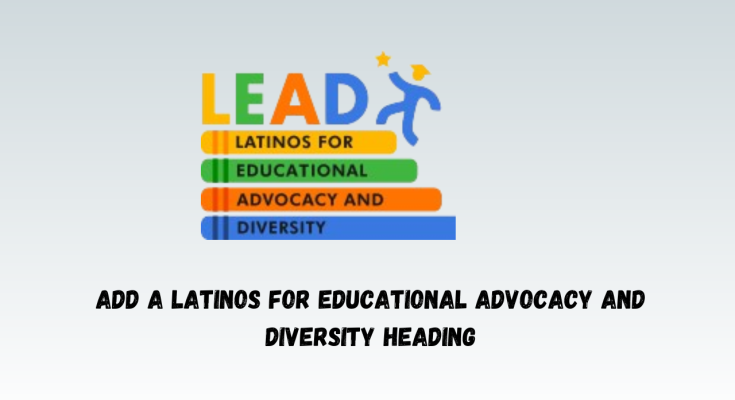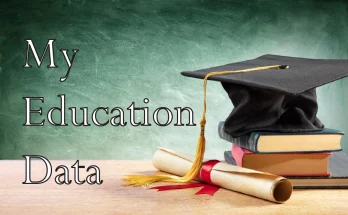Welcome to our blog post, where we dive into the empowering world of latinos for educational advocacy and diversity equity advocacy and diversity for Latinos. In a society that thrives on inclusivity, it’s crucial to amplify voices that have historically been underrepresented. Join us as we explore the ways in which latinos for educational advocacy and diversity are taking charge and making significant strides towards creating an equitable education system. From groundbreaking initiatives to inspiring stories of resilience, get ready to be inspired by the remarkable individuals who are driving change and shaping a brighter future for generations to come. Get ready to embark on this enlightening journey with us – together, let’s empower latinos for educational advocacy and diversity!
Introduction to the importance of educational equity and diversity for Latinos latinos for educational advocacy and diversity
Educational equity and diversity are vital components of a well-functioning education system. They ensure that all students, regardless of their race, ethnicity, or socioeconomic status, have equal access to quality education. In recent years, there has been growing awareness about the need for educational equity and diversity in our schools. This is especially important for Latinos, who make up a significant portion of the student population in the United States.
Latinos are the largest minority group in the country and also one of the fastest-growing populations. According to data from the National Center for Education Statistics (NCES), latinos for educational advocacy and diversity make up 26% of all public school students. However, despite their large representation in schools, they continue to face significant barriers when it comes to accessing quality education.
One of the main challenges faced by Latino students is educational inequity. This refers to the unequal distribution of resources and opportunities among different groups within a society. In education, this often manifests as disparities in funding, curriculum offerings, teacher quality, and overall academic achievement between schools with high concentrations of Latino students compared to those with more affluent student populations.

read More Article From : travelzens
Understanding the current state of Latino students in education latinos for educational advocacy and diversity
The state of education for Latino students in the United States is a complex and multifaceted issue that requires a deep understanding in order to effectively address it. In recent years, there has been a growing focus on the disparities faced by Latino students in education, and efforts have been made to improve their access to high-quality schooling.
According to data from the National Center for Education Statistics, Latino students make up approximately 26% of the total public school population, making them the largest minority group in U.S. schools. However, despite this significant presence, they continue to face numerous challenges when it comes to educational equity and achievement.
One major factor contributing to these challenges is socioeconomic status. Many Latino families are low-income or living below the poverty line, which can create barriers to accessing quality education due to lack of resources such as books, technology, and tutoring services. Additionally, language barriers can also play a role in hindering academic success for these students.
The role of advocacy in promoting educational equity and diversity latinos for educational advocacy and diversity
Advocacy plays a critical role in promoting educational equity and diversity for Latinos. Educational equity refers to the fair and just distribution of resources, opportunities, and outcomes in education for all students, regardless of their background or identity. Diversity, on the other hand, refers to the presence and inclusion of individuals from different backgrounds and identities within educational settings.
One of the main reasons why advocacy is important in promoting educational equity and diversity is because it addresses systemic barriers that prevent Latino students from accessing quality education. These barriers can include economic inequalities, discrimination, language barriers, limited resources in schools with high Latino populations, lack of culturally responsive teaching methods, and inadequate support systems.
Advocacy efforts aim to address these barriers by advocating for policies and programs that promote equal access to education for Latino students. This could include advocating for increased funding for schools with high Latino populations, ensuring culturally responsive curriculum and teaching methods are implemented in classrooms, providing support services such as bilingual education or counseling for English Language Learners (ELLs), and addressing discriminatory practices within schools.
Ways to empower and support Latino students in education latinos for educational advocacy and diversity
As the Latino population continues to grow in the United States, it is essential to prioritize and support their education. Unfortunately, many Latino students face significant obstacles in their educational journey, such as language barriers, lack of resources, and discrimination. As a society, we must take action to empower and support Latino students so they can achieve educational equity and success.
Here are some ways we can work towards empowering and supporting Latino students in education: latinos for educational advocacy and diversity
-
Encourage Parental Involvement:
One crucial step in empowering Latino students is to involve their parents or guardians in their education. Many times, due to language barriers or cultural differences, parents may feel disconnected from their child’s schooling. Schools can bridge this gap by providing translation services and culturally responsive communication methods for parents. Additionally, involving parents in school activities and decision-making processes can help them understand the importance of education for their children.
Strategies for creating a more diverse and inclusive educational environment latinos for educational advocacy and diversity
Creating a diverse and inclusive educational environment is crucial for promoting equity and empowering Latinos in the education system. In order to achieve this, it is important for educators, school administrators, and policymakers to implement strategies that foster diversity, promote inclusion, and address issues of equity within their institutions.
One key strategy for creating a more diverse and inclusive educational environment is to actively seek out and hire a diverse staff. This includes recruiting teachers from different racial, ethnic, and cultural backgrounds who can serve as role models for Latino students. It also involves providing professional development opportunities that focus on cultural competency and sensitivity training for all staff members.
Another important strategy is to incorporate multicultural perspectives and content into the curriculum. This means including materials that reflect the experiences of Latino students in the classroom. It also involves teaching about different cultures, histories, languages, and traditions in a way that celebrates diversity rather than perpetuating stereotypes.
Resources for individuals or organizations looking to get involved in this cause latinos for educational advocacy and diversity
If you are an individual or organization looking to get involved in the cause of educational equity advocacy and diversity for Latinos, there are many resources available to help you make a positive impact. These resources include organizations, programs, and initiatives that focus on empowering Latino communities and promoting diversity in education.
One of the first resources to consider is joining a local or national organization that focuses on advocating for educational equity for Latinos. Some notable organizations include UnidosUS (formerly known as National Council of La Raza), Hispanic Federation, and League of United Latin American Citizens (LULAC). These organizations not only work towards improving educational opportunities for latinos for educational advocacy and diversity but also address other important issues such as immigration, healthcare, and economic empowerment. By becoming a member or volunteering with these organizations, individuals can directly contribute to the cause and be part of a larger community working towards creating change.
Conclusion: Why empowering Latinos for educational equity and diversity is crucial for the future of our society. latinos for educational advocacy and diversity
Conclusion: Why Empowering latinos for educational advocacy and diversity is Crucial for the Future of Our Society
In today’s diverse and interconnected society, it is crucial to ensure that all communities have access to quality education. However, the Latino community still faces numerous challenges when it comes to educational equity and diversity. In this article, we have explored the barriers faced by Latino students and how empowering them can lead to a more equitable and diverse future.
Firstly, empowering latinos for educational advocacy and diversity means providing them with equal opportunities to succeed in their academic pursuits. As discussed earlier, factors such as language barriers, lack of access to resources and cultural bias can hinder their educational journey. By addressing these issues and creating a level playing field, we can ensure that Latino students are not left behind in the pursuit of higher education.
Moreover, promoting diversity within our education system is essential for building an inclusive society. The Latino community makes up a significant portion of the population in many countries such as the United States. Therefore, it is crucial to have representation from this community in different fields such as politics, business or academia. By empowering Latino students through education, we are not only investing in their individual success but also contributing towards a more diverse and representative society.
read More Article From:Unpacking the Revolution of 11520 Education | Beyond the Bell




